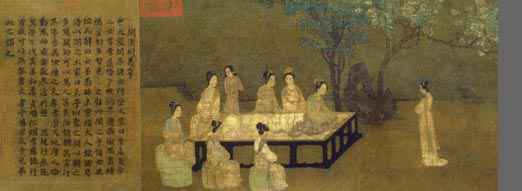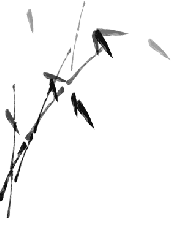Joinery:
Constructed with dovetail or other joints instead of nails
Chinese lattice or fretwork
: a type of openwork pattern originating in Chinese art
Molding : decorative
pieces of wood, often carved, attached by joinery to the joints
of a piece
Low -relief engraving
: decoration made by carving away the surrounding wood
Caning : weaving with
split rattan or bamboo fiber for seats or beds
Plain hardwood : furniture
made of woods such as hua li, which are waxed but left unlacquered
Lacquer : red or black
coating that imparts a high gloss to surfaces. Asian varnish made from tree gum.
Waisted : the indentation
just below the top of a table, stool or bench
Spandrel : corner support
between top or seat and legs
Feng Shui : Chinese practice
of arranging elements to achieve the greatest harmony and
balance
Apron
A skirt of wood running between the legs of a chair or cabinet.
Cabriole leg
A leg that is curved in an ogee shape.
Carcass
The main body or understructure of a piece of furniture, onto which a veneer or other covering is laid.
Case furniture
Furniture — cabinets, chests and cupboards — made for storing objects.
Chinoiserie
Western decorative imitations of Asian designs found mainly in the 17th and 18th centuries.
Dowel
A wooden peg used to hold early mortise-and-tenon joints in place.
Frieze
A horizontal ornamental strip.
Gilding
Coating of gold leaf or gold dust.
Grain
A pattern that is formed in wood by its fibers.
Hardwood
Timber from any tree that is not a conifer; wood known for its strength and durability.
Horsehoof
Style of table or chair leg that resembles the hoof of a horse of chinese antique furniture.
Inlay
Decorative design set into the surface of a piece of furniture.
Japanning
Western method of imitating Asian lacquering techniques.
Joints
mitre : a corner joint in which two pieces of wood are cut so that when joined they form a right angle before being nailed or glued in place.
mortise-and-tenon : a joint formed by hollowing out a hole (mortise) in one piece of wood and inserting a second, projecting piece (tenon); sometimes glued or held in place with a dowel.
dovetail : a refinement of the mortise-and-tenon joint; a right-angled joint secured by interlocking, fan-shaped tenons.
Low -relief engraving
Decoration made by carving away the surrounding wood of chinese antique furniture.
Marquetry
Use of veneer and other wooden inlays to make decorative patterns featuring naturalistic motifs.
Motif
A distinctive feature or theme in a composition.
Mount
A decorative fitting attached to furniture (often of metal, ormolu or ceramic).
Mortise and tenon structure
A type of joinery which connects furniture components with an extended tongue (tenon) fitted precisely into a cutout (mortise) of chinese antique furniture.
Patina
Surface texture of furniture that develops with age.
Plain hardwood
Furniture made of woods such as hua li, which are waxed but left unlacquered of chinese antique furniture.
Rail
A horizontal bar running between the legs or uprights of a piece.
Softwood
Timber of coniferous trees; wood that is easy to cut.
Splat
The central upright of a chair back.
Stretcher
The horizontal bar joining and stabilizing the legs of a chair or table.Supports between legs of chairs, tables or benches - shape is straight or Humpback of chinese antique furniture.
Veneer
Thin sheets of wood laid on top of a piece's carcass for decorative purposes.

